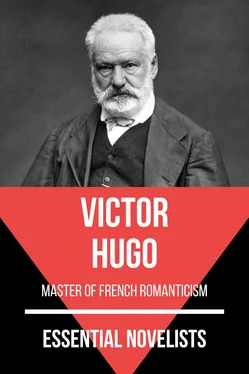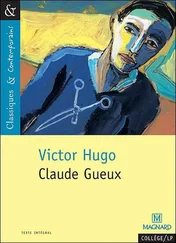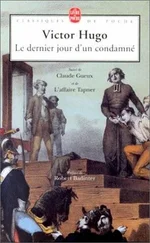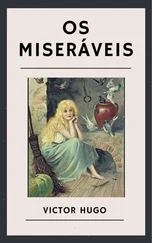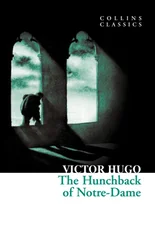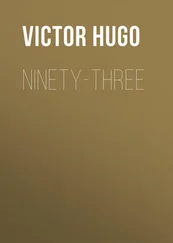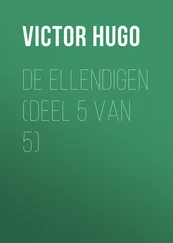It weighs upon the woman, that is to say, upon grace, weakness, beauty, maternity. This is not one of the least of man’s disgraces.
At the point in this melancholy drama which we have now reached, nothing is left to Fantine of that which she had formerly been.
She has become marble in becoming mire. Whoever touches her feels cold. She passes; she endures you; she ignores you; she is the severe and dishonored figure. Life and the social order have said their last word for her. All has happened to her that will happen to her. She has felt everything, borne everything, experienced everything, suffered everything, lost everything, mourned everything. She is resigned, with that resignation which resembles indifference, as death resembles sleep. She no longer avoids anything. Let all the clouds fall upon her, and all the ocean sweep over her! What matters it to her? She is a sponge that is soaked.
At least, she believes it to be so; but it is an error to imagine that fate can be exhausted, and that one has reached the bottom of anything whatever.
Alas! What are all these fates, driven on pell-mell? Whither are they going? Why are they thus?
He who knows that sees the whole of the shadow.
He is alone. His name is God.
Chapter XII
M. Bamatabois’s Inactivity
––––––––
THERE IS IN ALL SMALL towns, and there was at M. sur M. in particular, a class of young men who nibble away an income of fifteen hundred francs with the same air with which their prototypes devour two hundred thousand francs a year in Paris. These are beings of the great neuter species: impotent men, parasites, cyphers, who have a little land, a little folly, a little wit; who would be rustics in a drawing-room, and who think themselves gentlemen in the dram-shop; who say, “My fields, my peasants, my woods”; who hiss actresses at the theatre to prove that they are persons of taste; quarrel with the officers of the garrison to prove that they are men of war; hunt, smoke, yawn, drink, smell of tobacco, play billiards, stare at travellers as they descend from the diligence, live at the café, dine at the inn, have a dog which eats the bones under the table, and a mistress who eats the dishes on the table; who stick at a sou, exaggerate the fashions, admire tragedy, despise women, wear out their old boots, copy London through Paris, and Paris through the medium of Pont-à-Mousson, grow old as dullards, never work, serve no use, and do no great harm.
M. Félix Tholomyès, had he remained in his own province and never beheld Paris, would have been one of these men.
If they were richer, one would say, “They are dandies;” if they were poorer, one would say, “They are idlers.” They are simply men without employment. Among these unemployed there are bores, the bored, dreamers, and some knaves.
At that period a dandy was composed of a tall collar, a big cravat, a watch with trinkets, three vests of different colors, worn one on top of the other—the red and blue inside; of a short-waisted olive coat, with a codfish tail, a double row of silver buttons set close to each other and running up to the shoulder; and a pair of trousers of a lighter shade of olive, ornamented on the two seams with an indefinite, but always uneven, number of lines, varying from one to eleven—a limit which was never exceeded. Add to this, high shoes with little irons on the heels, a tall hat with a narrow brim, hair worn in a tuft, an enormous cane, and conversation set off by puns of Potier. Over all, spurs and a moustache. At that epoch moustaches indicated the bourgeois, and spurs the pedestrian.
The provincial dandy wore the longest of spurs and the fiercest of moustaches.
It was the period of the conflict of the republics of South America with the King of Spain, of Bolivar against Morillo. Narrow-brimmed hats were royalist, and were called morillos; liberals wore hats with wide brims, which were called bolivars.
Eight or ten months, then, after that which is related in the preceding pages, towards the first of January, 1823, on a snowy evening, one of these dandies, one of these unemployed, a “right thinker,” for he wore a morillo, and was, moreover, warmly enveloped in one of those large cloaks which completed the fashionable costume in cold weather, was amusing himself by tormenting a creature who was prowling about in a ball-dress, with neck uncovered and flowers in her hair, in front of the officers’ café. This dandy was smoking, for he was decidedly fashionable.
Each time that the woman passed in front of him, he bestowed on her, together with a puff from his cigar, some apostrophe which he considered witty and mirthful, such as, “How ugly you are!—Will you get out of my sight?—You have no teeth!” etc., etc. This gentleman was known as M. Bamatabois. The woman, a melancholy, decorated spectre which went and came through the snow, made him no reply, did not even glance at him, and nevertheless continued her promenade in silence, and with a sombre regularity, which brought her every five minutes within reach of this sarcasm, like the condemned soldier who returns under the rods. The small effect which he produced no doubt piqued the lounger; and taking advantage of a moment when her back was turned, he crept up behind her with the gait of a wolf, and stifling his laugh, bent down, picked up a handful of snow from the pavement, and thrust it abruptly into her back, between her bare shoulders. The woman uttered a roar, whirled round, gave a leap like a panther, and hurled herself upon the man, burying her nails in his face, with the most frightful words which could fall from the guard-room into the gutter. These insults, poured forth in a voice roughened by brandy, did, indeed, proceed in hideous wise from a mouth which lacked its two front teeth. It was Fantine.
At the noise thus produced, the officers ran out in throngs from the café, passers-by collected, and a large and merry circle, hooting and applauding, was formed around this whirlwind composed of two beings, whom there was some difficulty in recognizing as a man and a woman: the man struggling, his hat on the ground; the woman striking out with feet and fists, bareheaded, howling, minus hair and teeth, livid with wrath, horrible.
Suddenly a man of lofty stature emerged vivaciously from the crowd, seized the woman by her satin bodice, which was covered with mud, and said to her, “Follow me!”
The woman raised her head; her furious voice suddenly died away. Her eyes were glassy; she turned pale instead of livid, and she trembled with a quiver of terror. She had recognized Javert.
The dandy took advantage of the incident to make his escape.
Chapter XIII
The Solution Of Some Questions Connected With The Municipal Police
––––––––
JAVERT THRUST ASIDE the spectators, broke the circle, and set out with long strides towards the police station, which is situated at the extremity of the square, dragging the wretched woman after him. She yielded mechanically. Neither he nor she uttered a word. The cloud of spectators followed, jesting, in a paroxysm of delight. Supreme misery an occasion for obscenity.
On arriving at the police station, which was a low room, warmed by a stove, with a glazed and grated door opening on the street, and guarded by a detachment, Javert opened the door, entered with Fantine, and shut the door behind him, to the great disappointment of the curious, who raised themselves on tiptoe, and craned their necks in front of the thick glass of the station-house, in their effort to see. Curiosity is a sort of gluttony. To see is to devour.
On entering, Fantine fell down in a corner, motionless and mute, crouching down like a terrified dog.
The sergeant of the guard brought a lighted candle to the table. Javert seated himself, drew a sheet of stamped paper from his pocket, and began to write.
Читать дальше
